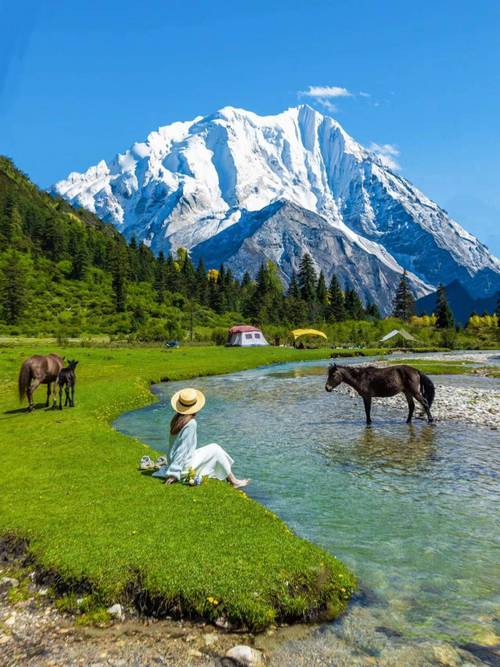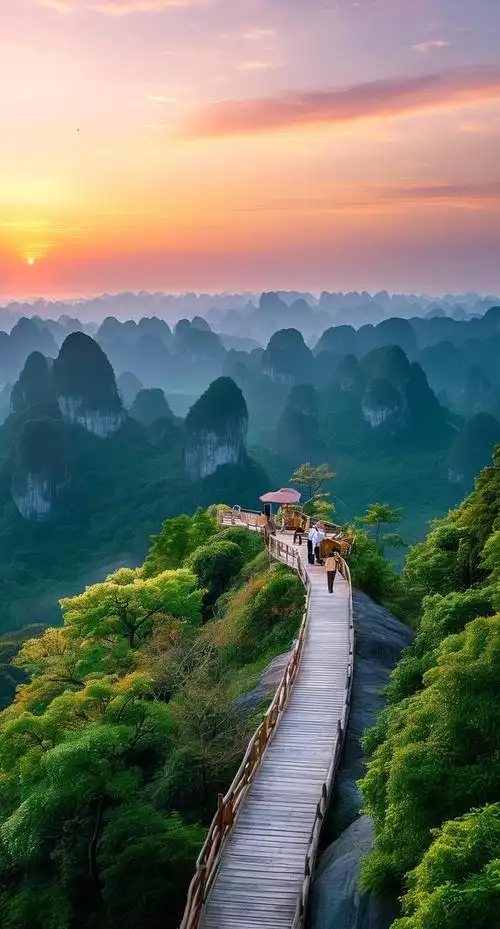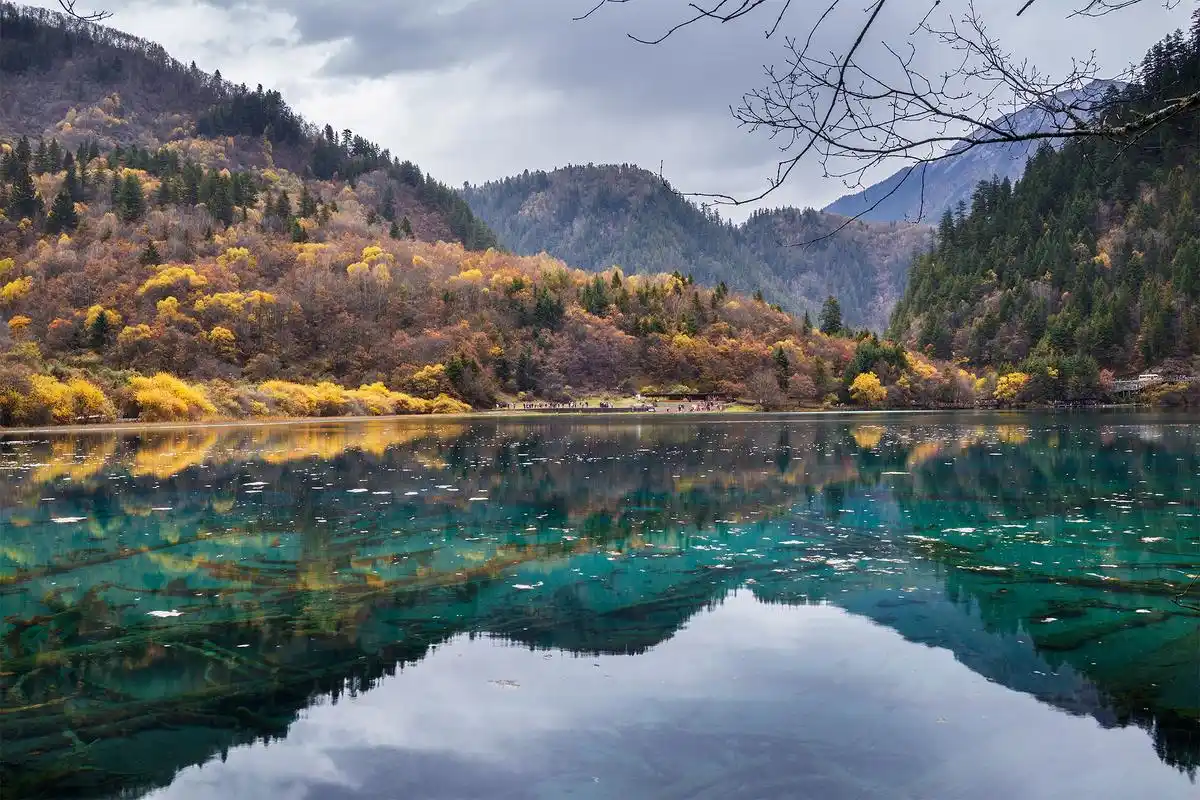China Travel
Affordable China Getaways: Meizhou’s Hakka Round Houses and Tea Gardens on a Budget
Title: Unlocking the Secrets of Meizhou: A Budget-Friendly Journey into Hakka Culture and Verdant Tea Gardens
Nestled in the rolling hills of eastern Guangdong Province, far from the well-trodden paths of Beijing, Shanghai, and the Zhangjiajie mountains, lies Meizhou. This unassuming prefecture-level city is the cultural heartland of the Hakka people, an ethnic Han subgroup with a rich, migratory history. For the traveler seeking an authentic, immersive, and profoundly affordable Chinese experience, Meizhou offers a captivating blend of unique architecture, serene landscapes, and warm hospitality that won’t strain your wallet. This is a journey into a living museum, where ancient round houses dot the countryside and the air is fragrant with the scent of freshly picked tea.
The Hakka: A Story Etched in Architecture
To understand Meizhou is to understand the Hakka. Their name, 客家 (Kèjiā), literally means “guest families,” reflecting their history of migration from central China centuries ago. As newcomers to southern regions, they built communities characterized by resilience and a strong sense of clan identity. This spirit is most magnificently embodied in their unique architectural marvel: the Tulou, or more specifically for this region, the Weilongwu (Enclosed Dragon House) and the iconic Round Houses (Yuanlou).
While the Fujian Tulou are a UNESCO World Heritage site and draw larger crowds, Meizhou’s Hakka dwellings offer a more intimate and budget-conscious alternative. These structures are not mere buildings; they are fortified villages designed for communal living and defense. The most breathtaking are the circular or rectangular enclosed houses, with towering earth walls and intricately tiled roofs ringing a vast central courtyard.
A visit to the Yanxiang Lou in Meizhou County is a must. Unlike some of the more commercialized sites, entering Yanxiang Lou feels like stepping back in time. For a minimal entrance fee (often under 20 RMB or ~$3 USD), you can wander through the multiple stories. The ground floor housed kitchens and livestock, the upper floors contained granaries and living quarters, and the entire complex was self-sufficient. Standing in the central courtyard, surrounded by hundreds of wooden balconies under a circle of open sky, you can almost hear the echoes of generations of families living, working, and celebrating together. The beauty of Meizhou is that many of these structures are still active residences. You might see elderly residents sunning themselves, children playing, and laundry hanging—a living, breathing culture rather than a static exhibit.
For the budget traveler, the key is exploration by local bus or shared taxi. Hiring a private driver for a day to visit a cluster of houses in a village like Bazi Village is surprisingly inexpensive, especially if split between two or three people, often costing less than $50 for a half-day tour.
A Tea Lover’s Paradise on a Shoestring Budget

Beyond the architectural wonders, Meizhou’s landscape is sculpted by another cultural cornerstone: tea. The region’s humid, mountainous climate provides the perfect terroir for growing some of China’s finest teas, most notably Oolong and the local specialty, Nanyou Tea.
A trip to a tea plantation is not just a tasting; it’s a full sensory experience and an incredibly affordable day trip. The Fengshun Tea Plantation areas are a short bus ride from the city center. For no cost at all, you can spend hours walking through the mesmerizing, emerald-green terraces that cascade down the hillsides like a giant’s staircase. The geometric patterns of the tea bushes against the backdrop of misty mountains provide endless photographic opportunities.
Many family-run farms welcome visitors. For a small fee (or sometimes just the purchase of some tea), you can join a tea-picking session. A local farmer will show you the precise technique for plucking the “two leaves and a bud,” offering a genuine connection to the source of your morning brew. Afterwards, you’ll be invited into a simple processing room or a family’s sitting area for a traditional tea ceremony. This is not a fancy, high-pressure sales pitch but a genuine cultural exchange. You’ll learn how to properly appreciate the tea’s aroma, color, and taste through multiple infusions. A 100-gram bag of high-quality, locally sourced tea bought directly from the farmer might cost a fraction of what you’d pay in a city teahouse, making it the perfect budget-friendly souvenir.
Navigating Meizhou on a Budget
-
Getting There & Around: Meizhou has its own airport (Meixian Airport) with connections to major Chinese cities, but for the true budget traveler, the high-speed rail (HSR) is a godsend. A bullet train from Shenzhen or Guangzhou takes roughly 2-3 hours and costs between $15-$30. Within the city, public buses and taxis are plentiful and cheap. The real adventure begins with the local buses that connect to the rural villages; fares are often just a few RMB.
-
Affordable Accommodation: While Meizhou has international chain hotels, the real charm and savings lie in local guesthouses. Family-run inns (客栈, kèzhàn) near major Tulou sites or in the city offer clean, basic rooms for as little as $15-$25 per night. For a truly unique experience, some Hakka Round Houses have been converted into simple homestays, allowing you to sleep within the historic walls for around $30-$40 a night, including home-cooked meals.
-
Delicious and Cheap Eats: Hakka cuisine is hearty, flavorful, and famously easy on the pocket. Must-try dishes include:
- Salt-Baked Chicken (盐焗鸡, Yánjú Jī): A signature dish where chicken is baked in a crust of salt, resulting in incredibly tender and flavorful meat. A whole chicken can cost as little as $10.
- Yong Tau Foo (酿豆腐, Niàng Dòufu): Tofu cubes stuffed with a savory minced meat and fish paste mixture, then braised or steamed. A filling meal can be had for under $5.
- Lei Cha (擂茶, Léi Chá): A "pounded tea" made from tea leaves, herbs, nuts, and seeds ground together and served as a savory soup or drink. It’s a unique culinary experience and a budget-friendly meal in itself. Explore local noodle shops and street food stalls for meals that consistently cost under $2-$3.
Crafting Your Budget Itinerary
A fulfilling 3-day/2-night trip to Meizhou can easily be achieved on a budget of under $150, excluding the cost of getting to the city.
- Day 1: Arrive via HSR, check into a city guesthouse. Spend the afternoon exploring Meizhou Old Town and the Thousand-Buddha Temple on Linyang Mountain, offering panoramic city views. Enjoy a dinner of Hakka classics at a local market.
- Day 2: Take a morning local bus to a cluster of Hakka Round Houses (e.g., Yanxiang Lou). Spend the day exploring the architecture and interacting with locals. Have a simple lunch at a village restaurant. Return to the city in the late afternoon.
- Day 3: Head out to the tea plantations of Fengshun. Walk the terraces, participate in a tea-picking session, and enjoy a ceremony. Buy tea directly from the source before catching your evening HSR back to your next destination.
Meizhou is a testament to the fact that the most profound travel experiences are not always the most expensive. It is a destination that rewards curiosity and a willingness to step off the beaten path. It offers a deep dive into a vibrant living culture, the awe-inspiring ingenuity of communal architecture, and the tranquil beauty of mountain tea gardens—all without demanding a luxury budget. In Meizhou, the richest experiences are, quite beautifully, also the most affordable.
-
上一篇

Budget China: Shantou’s Coastal Food Stalls and Ancient Temples Without Overspending
**BudgetChina:SavoringShantou’sCoastalFoodStallsandAncientTemplesWitho
-
下一篇

Cheap China Travel: Ganzhou’s Song Dynasty City Walls and Hakka Culture for Budget Tourists
**Title:UncoveringGanzhou:ABudgetTraveler’sJourneyThroughSongDynastyWa
相关文章
- Budget China: Fuyang’s Ecological Parks and Rural Scenery for Under $35 a Day
- Cheap Travel in China: Bozhou’s Traditional Medicine Culture and Ancient Streets on a Budget
- Affordable China Destinations: Chizhou’s Jiuhua Mountain and Buddhist Sites on a Budget
- Budget-Friendly China: Huangshan City’s Villages and Tea Plantations on a Shoestring
- Cheap China Travel: Jingdezhen’s Porcelain Culture and Workshops for Less
- Affordable China Getaways: Yingtan’s Longhu Mountain and Taoist Heritage on a Budget
- Budget China: Nanchang’s Tengwang Pavilion and Gan River Night Views for Under $40 a Day
- Cheap Travel in China: Jiujiang’s Poyang Lake and Lushan Mountain Gateway on a Budget
- Affordable China Destinations: Yichun’s(Mingyue Mountain) and Hot Springs for Less
- Budget-Friendly China: Shangrao’s Sanqing Mountain and Ancient Villages on a Shoestring
发表评论
评论列表
- 这篇文章还没有收到评论,赶紧来抢沙发吧~

